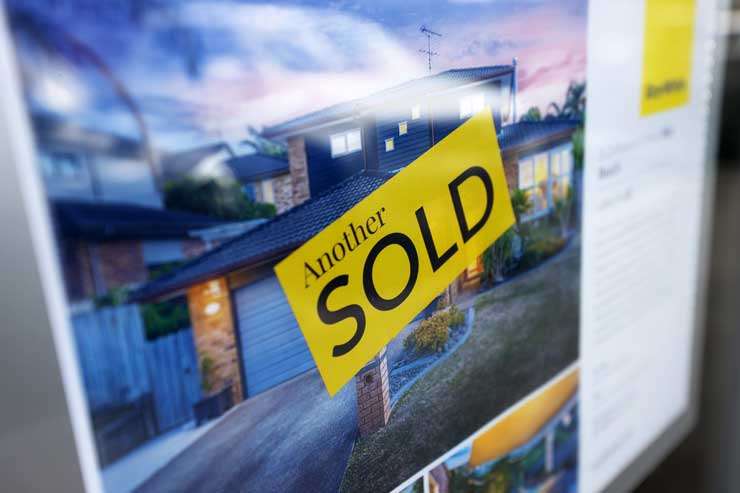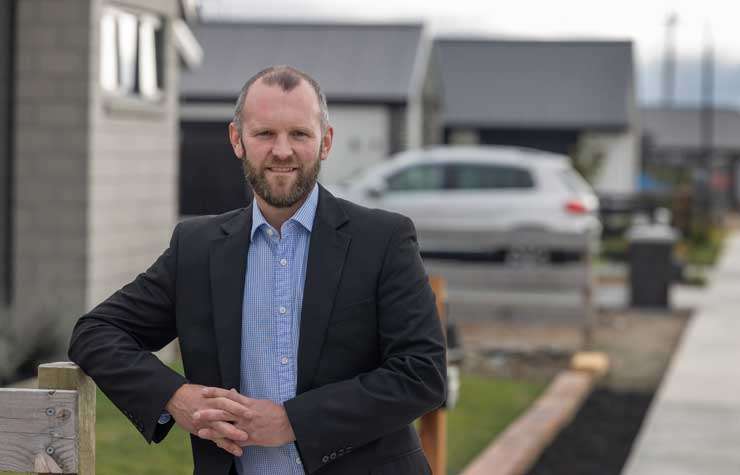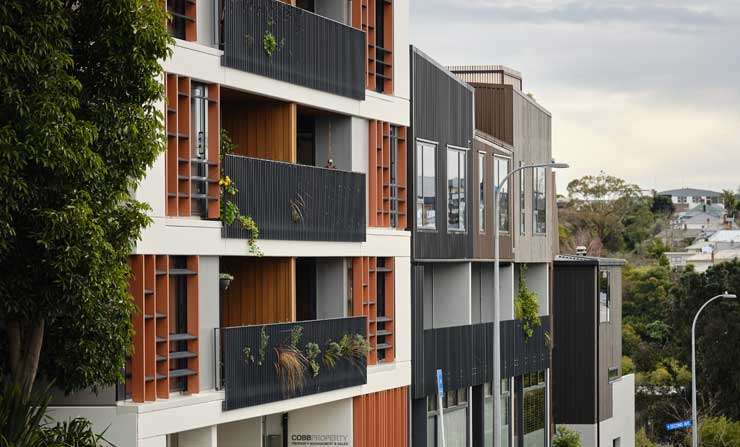It was all nearly all gain and minimal pain for property sellers last year, right around the country.
A record 99.3% of property sales made in the last three months of 2021 made their owners a healthy profit, with property investors making the largest gains, according to CoreLogic’s latest Pain and Gain Report.
Start your property search
The median resale gain across the country in Q4 2021 was $420,000 - up on the $377,500 median gain for the preceding quarter and yet another new high for last year’s pumped housing market.
The median resale loss was $20,000.
Wellington’s median resale profit remained the largest of the main centres at $593,000, just ahead of Auckland at $585,000 and Tauranga at $529,000.
Hamilton’s median gain was $418,000, while Dunedin and Christchurch’s gain came in below $400,000.
However, the big gains identified in the report haven’t necessarily translated into cash windfalls for home-owners, unless they are downsizing or moving to a cheaper location, with most of the profits made on sales going straight back into housing.
The report’s author, CoreLogic chief property economist Kelvin Davidson, said: “In most cases any equity accumulated needs to be recycled straight back into the next property purchase, with ‘trade ups’ likely to involve higher debt levels too.”
The report also warns housing market profits could soften in 2022, given there are clear signs prices have passed their peak growth phase.
“We suspect that a shift in the balance of pricing power away from vendors and towards buyers is now in progress which will dampen resale performance in 2022,” Davidson said.

A sold ad in the window of an Auckland real estate office. Auckland's median gain for the end of 2021 was $585,000. Photo / Fiona Goodall
The total resale gain across the country, $.7.5 billion, was down $2b on the same quarter in 2020, but Davidson, said that was the result of more properties trading in 2020.
In the second quarter of 2020, which was around the time Covid “grabbed hold of New Zealand”, the median resale gain was “only” $223,000, demonstrating the sheer scale of property value growth that took place over the last couple of years.
The report found that the median profit made by investors over the quarter was $446,000 - 7% higher than the median profit made by owner-occupiers.
However, the investors who made a loss did so at a higher rate than owner-occupiers. The median resale loss for investors was $52,000, as opposed to $3000 for owner-occupiers.
"It has helped in the past few quarters that most resellers would have found themselves in a strong bargaining position amidst the low level of listings and lack of choice for buyers," Davidson said.
"However, as the balance of power switches from sellers to buyers over the coming quarters, it’ll be interesting to see if the resale performance by investors weakens just a touch faster than owner-occupiers again."
The Pain and Gain Report analysed every residential property resale made in the three months to the end of 2021 and compared the most recent sale price to the previous sale price.

CoreLogic chief economist Kelvin Davidson: "On paper is a great phrase; it’s not necessarily real cash.” Photo / Peter Meecham
The percentage of properties being resold for more than their original purchase price over the three-month period was a record high - surpassing the previous peak of 99.2% recorded between July and September of last year.
“Across the 25-year history of this data series, never before have we seen such a high and sustained peak for the share of resellers that are making gross profits,” Davidson said.
The report found a minimal amount of pain: only 0.7% of resellers failed to make a gross profit of some sort – a clear sign that mortgage distress across the country is negligible.
The report also highlights the importance of “hold” time. Properties resold for a gross profit in Q4 last year had been owned for a median of 7.1 years, whereas for loss-making resales the median hold period was only 2.5 years, down sharply from 3.8 years in Q3 2021.
This illustrates loss-makers in the final three months of last year were possibly owners who were not intending to sell so quickly but had been forced to sell – and accept a weaker price – by a change in life or financial circumstances.
Other findings in the report included:
- The strength of the resale figures crossed locations, be they main centres or small provincial districts, and covered both owner-occupiers and investors, and both houses and apartments.
- However, the median resale profit for a house was much higher at $420,000 than for an apartment at $195,435.
- In each main centre, at least 99% of property resales were made above the original purchase price with Tauranga the highest at 99.8% and Dunedin next at 99.6%.
- Gisborne, Whangarei and Rotorua all had at least 99% of resales achieving a gross profit and the South Island also performed strongly with Queenstown’s median resale profit at $581,000, Nelson at $365,000 and Invercargill at $235,000.

An apartment block in Kingsland, auckland. The median gain for apartments resold in the last three months of 2021 was just over $195,000. Photo / Ted Baghurst
Davidson told OneRoof that 2021 had been a tight market. The low number of listings hadn’t given buyers much choice but low interest rates and rising prices had fuelled buying activity.
How long home-owners had held their property was another big determining factor, with those who had owned for 10 or 20 years obviously making the bigger gains.
But while a home-owner may have made a $500,000 profit, the problem was so had everybody else, Davison said.
“I think on paper is a great phrase; it’s not necessarily real cash,” he said.
“Unless you’re moving from Auckland to Mataura or downsizing from a Herne Bay mansion to a townhouse somewhere you’re generally going to have to just put all of that equity back into the next purchase – and possibly taking on more debt, too.”
Brian Greer, from the Loan Market in Dunedin, said people might recycle their gains back into housing and take on more debt to upscale – if only they could get credit.
They can’t, he said, because of the lending and credit changes that have come in which has “stopped” the Dunedin housing market.
In the last quarter of last year people had an appetite for more debt but with the CCCFA and LVR restrictions they can’t get it, he says.
The CCCFA impact has been “huge” but the LVR has been an even bigger “killer” of dreams, he says, with no bank being able to lend above 80 per cent LVR.
“Appetite was strong, people were keen and it basically flipped on its head basically where people couldn't get credit any more.
“Finance is the oil that lubricates the real estate market and it's been shut down.”
Mike Whittaker, of Mike Whittaker Mortgages based in Parnell, Auckland, however, says he’s not had a loan turned down and people are still borrowing to upsize, although not by too much.














































































